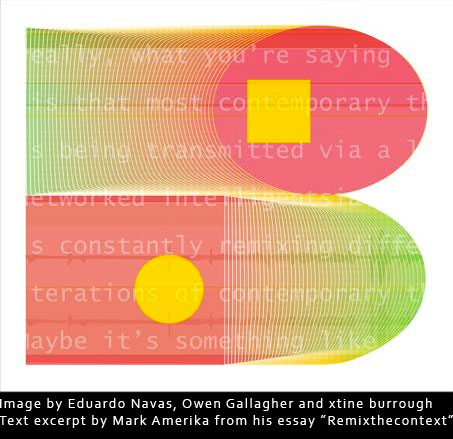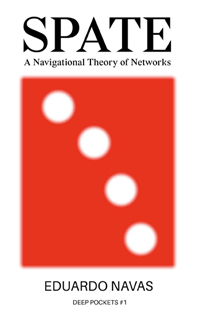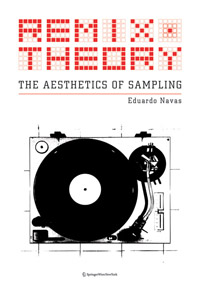“Culture and Remix: A Theory on Cultural Sublation” excerpt from The Routledge Companion, by Eduardo Navas

In late 2014/early 2015, I co-edited, along with xtine Burrough and Owen Gallagher, The Routledge Companion to Remix Studies. My chapter contribution to the anthology is “Culture and Remix: A Theory on Cultural Sublation.” Part of the introduction follows below. If interested, the chapter can be perused on Google books. Use Firefox for best results.
CULTURE AND REMIX
A Theory on Cultural Sublation
Eduardo Navas
Remix culture is a term increasingly used to explain basic principles of creativity and individual expression since the mid- to late 1990s.[1] Given its common usage, the nature of the compound-term’s dependence on a complex history may not seem obvious. When evaluating the relation of remix to culture at times one may ask, “What kind of culture are we becoming when we consider remixing an important element in creative production?” And, “What exactly is culture?” In this line of questioning, it becomes evident that in order to understand in depth what role remix plays in culture it is necessary to define with precision the term “culture.” This should make possible a discussion about the possibilities and limitations of remix, not only in terms of remix culture, which is a concept in large part informed and shaped by Creative Commons, but also culture in the larger context of history. The following, then, is a brief analysis in which I first define culture to then evaluate its relation to remix. The concept of the avant-garde is presented as a cultural example in which remixing is at play explicitly on two layers that I define as the framework of culture.[2] I also analyze how social media relies on the framework of culture to develop a new type of economy. This analysis will expose the reasons why, historically, creative production appears to resist established patterns of production, but eventually is sublated by cultural economies and becomes vital to capital as a whole.
Culture Defined
All cultural critics (as their title implies) have to assume a concise idea of culture. Two cultural critics who have taken the time to define culture at length are Raymond Williams, who published his theories around the 1950s, and Terry Eagleton, who became an authority as a surveyor of culture, due to his focus on the subject particularly in the 1980s. Eagleton defines culture by referencing the definitions of Williams, as well as T. S. Eliot. In Eagleton’s definition, one comes away with a sense of culture defined, unapologetically, by the West. He argues that as Western thought has spread throughout the world, it has been able to make claims to a certain way of thinking that affects other cultures that did not hold Western values.[3] Eagleton also points out that culture originates in nature and is defined by labor. Culture is nature modified according to the interests of individuals who perform a specific form of manual work: “We derive our word for the finest of human activities from labour and agriculture, crops and cultivation.”[4] Eagleton discusses at some length how culture developed a sense of resistance, especially in the nineteenth century; for him, such resistance has links to the rise of the avant-garde during the same time period.
According to Raymond Williams, the fact that art became a value in and of itself at times separated from everyday life was the result of a preoccupation with cultural changes that started around 1790, and climaxed around 1945. Part of the cultural struggle since the end of World War II, Williams argues, had been to find ways to reintegrate the value of art back into the everyday.[5] Williams divides the separation of art and everyday life into three stages: the first from 1790 to 1870, when industrialism rapidly developed; the second from 1870 to 1914, when specializations started to become the norm; and finally, 1914 to 1945, a time when the specializations of the second period kept developing, but became complicated by the rise of mass media and large corporations.[6]\
Peruse the chapter on Google books. Use Firefox for best results.








